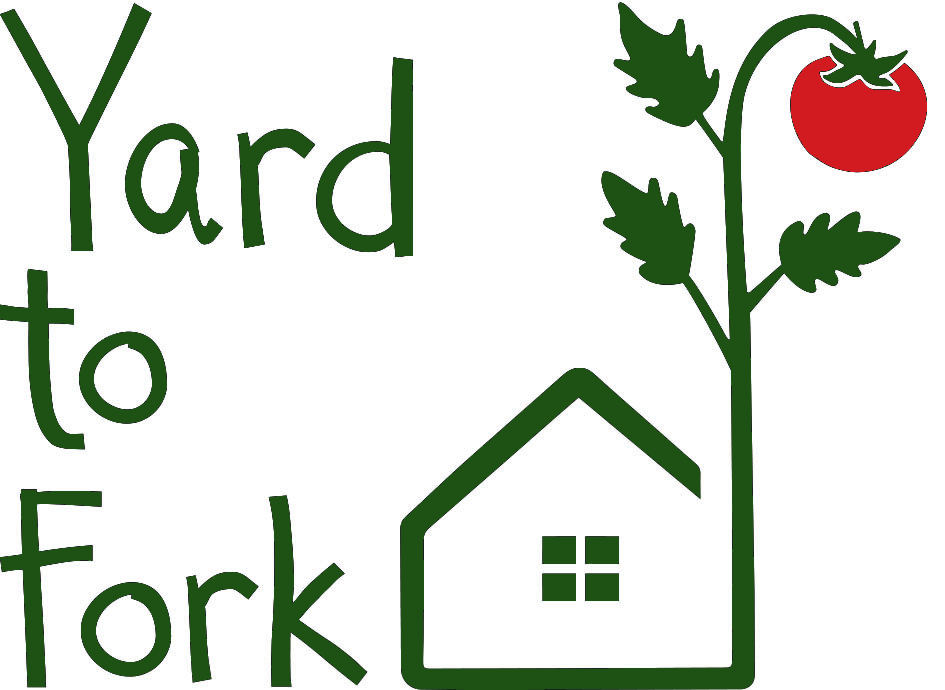When Your Garden Outgrows Your Kitchen: Tips for Tackling Excess Produce
/You’ve spent the last few months nurturing your garden—pruning with care, amending the soil, and staying vigilant against pests. The seedlings you planted are now thriving, healthy, and full of promise. You've kept diseases at bay and fine-tuned your irrigation to perfection. But now, there’s a new challenge…
What to do with all these vegetables!
Here at Yard to Fork, helping people in the Sacramento area to grow more fresh and healthy organic produce in their own yards is what we do, and at this time of year we often find ourselves giving advice on the best uses and preservation methods for truly bountiful crops.
Here are some of our tips for the veggies that tend to produce the most.
Zucchini
Our advice is that unless you have a very large family that goes crazy for zucchini, one plant is probably enough. These prolific producers are famous for overwhelming gardeners with fruit, and for going from small and delicious to gigantic and bland in only a few days.
To avoid going out into the garden and finding a world record size squash, keeping the plants well pruned is vital. The leaves can block your view to the main vine and immature fruits are well camouflaged. Besides helping to keep pests and mildew at bay, regular pruning will ensure the zucchini you harvest are small and sweet.
If you do find yourself with an oversized zucchini on your hands, the best way to use it up is to grate it. The grated squash can be added to tomato sauce and used to make a lasagna, or simply stirred through pasta. The fact that these larger squash have less flavor can be useful to sneak a few more veggies into your kids’ diet! They can also be used to make zucchini bread or seeded and stuffed with ground meat.
Cucumber
Cucumbers are another plant that will produce so much fruit it's sometimes hard to believe you only planted one!
It's very important to make sure you are regularly picking cucumbers, as if they get overripe they can become bitter and mushy. It's best to harvest these before they start to yellow at all. That said, even attentive gardeners will miss one or two. If you need to reduce the bitterness, the cucumber should be well peeled and the blossom end can be discarded. If the bitterness is very intense it's best to throw away the cucumber, as the compound that causes the bitterness can cause stomach upset if eaten in large amounts.
If you have managed to pick a whole basket of cucumbers and are wondering what to do with them, the classics really are the best. Simple bread and butter pickles are delicious and easy to prepare. But if you are feeling adventurous then try out this next preservation method.
Tomatoes
Tomatoes are probably the most popular of the backyard crops, and for good reason. Delicious, beautiful, and with so many varieties to choose from. If your aim is to harvest a few nice tomatoes for a salad every few days, consider planting less tomatoes and avoiding determinate varieties, these tend to ripen all at once and make a great choice if you enjoy making large batches of sauce or canning.
When faced with a mountain of ripe tomatoes many gardeners reach for their canning equipment, and store away their harvest to see them through until next year's plants begin to produce. Some other traditional storage methods are reducing the fruits to a paste for use in cooking, and sundrying.
If you aren't excited by the idea of pressure canning, there are countless ways to preserve your tomatoes. You could make a large batch of an elevated ketchup, pickle the tomatoes into a chutney with red onion, ferment cherry tomatoes to make fizzy champagne tomatoes or juice the fruits for cocktails and drinks. Tomatoes are extremely versatile, so get creative! Just be sure if canning or preserving to check for recipes from reputable sources to ensure food safety.
And if all of that sounds like a lot of work, tomatoes freeze very well when chopped into chunks in a freezer bag, just toss them straight into the pan!
Fermentation
Lacto fermentation is an extremely old process of food preservation. It involves submerging vegetables in a salty brine that allows only beneficial lactobacillus bacteria to thrive. As these microbes grow they produce lactic acid, and it is this acid that keeps your harvest from spoiling. This process is used to prepare kosher dill pickles for example.
The excellent thing about vegetable fermentation is that it only requires a scale, water, salt, vegetables and a bit of imagination. This general recipe works excellently with most vegetables. If you want to make kosher pickles, you would use cucumbers and add garlic, dill, peppercorns and mustard seeds. If you want to make a fermented hot sauce you might use chillis, garlic, and some fruit, blending once the fermentation process is complete. You can be as inventive or traditional as you like with your excess produce.
Fermentation method
Put vegetables in a clean mason jar or similar (leave around an inch of space between veggies and top of jar) and place on a scale
Zero the scale and add water up to the top.
Measure out 4-5% of the weight of water in kosher salt. (multiply the weight of the water by 0.04 or 0.05 depending on how salty you want your finished product).
Add the salt to the jar, fasten the lid and shake until the salt dissolves.
Ensure none of the vegetables are breaking the surface of the brine then loosen the lid to allow gasses to be released.
Place the jar at room temperature on a tray to catch any overflow.
Allow to ferment for 1 to 3 weeks, or longer if you like really sour pickles.
The brine will turn cloudy, and the jar can be closed and placed in the refrigerator once it is as sour as you like. These ferments will keep for months in a fridge, just be sure to open them from time to time to allow gasses to escape. They taste excellent and are extremely probiotic!
And if you find that even though you are being diligent with harvesting and preserving your veggies, you are still struggling to use up all your produce, we’re sure your neighbours will appreciate a few organic Yard to Fork veggies from time to time!




